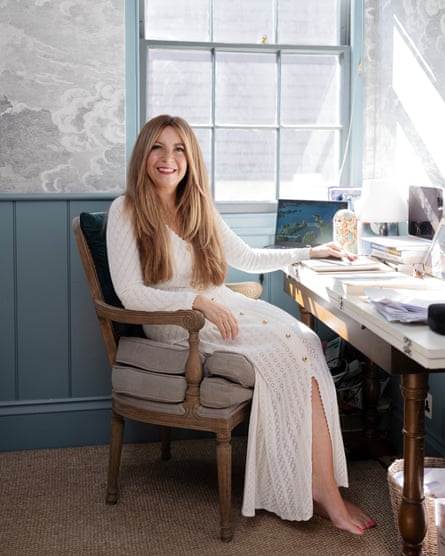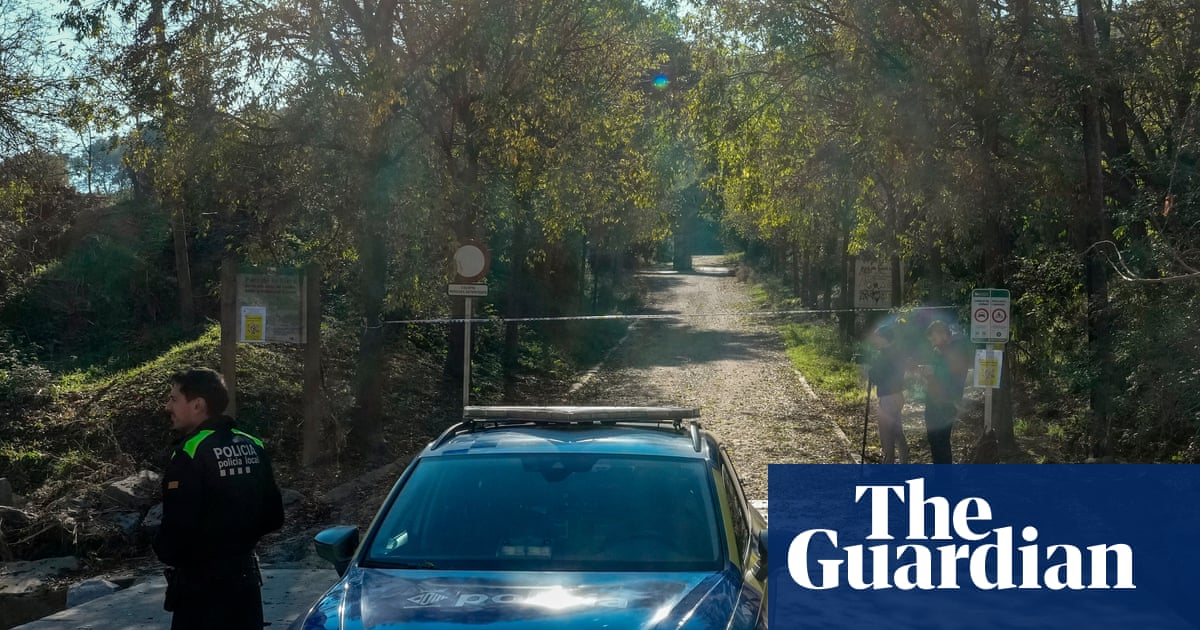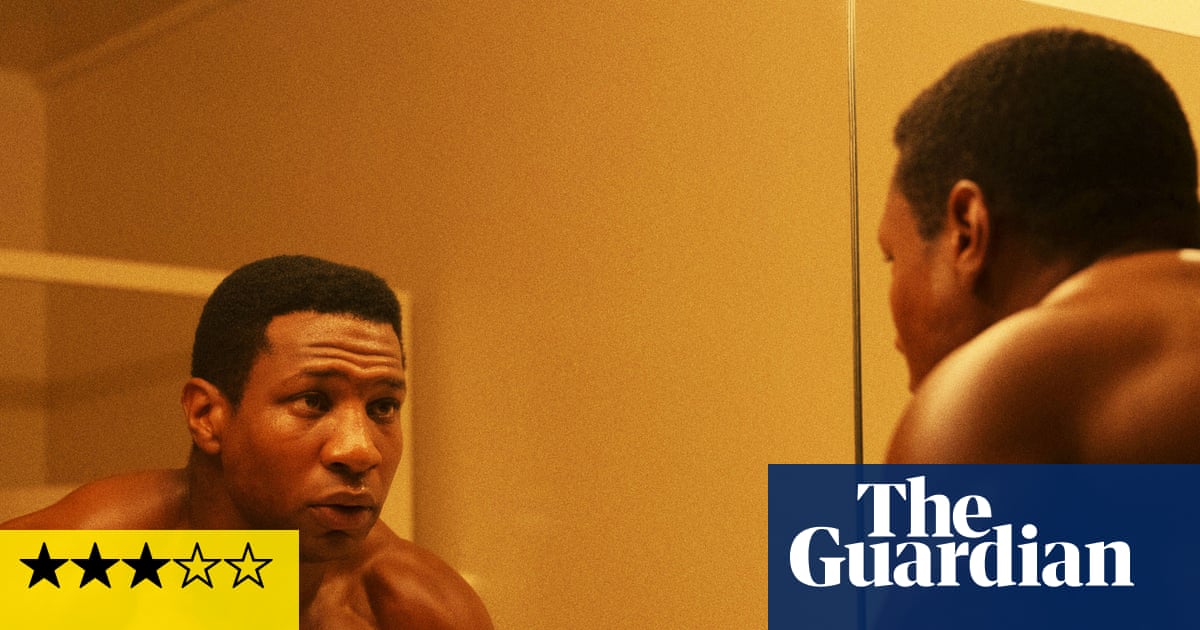Many of Kathleen Saxton’s clients only realise they were brought up by a narcissistic parent when they are older. Saxton, a psychotherapist, says that the truth may come with starting a relationship, meeting their partner’s family, and seeing they are nothing like their own. “Or they have family themselves, and think, ‘I would never do that to my own children.’ Sometimes it takes us until we’re in our 30s or 40s to realise that something was not OK.” Her oldest client is in their 70s and “has finally dealt with the fact they’ve got a narcissistic mother, who is still alive, and how it’s affected them all through their life”.
Saxton hopes her new book, My Parent the Peacock, will help people to recognise, and recover from, a narcissistic parent. They might have grown up being controlled, in an environment where love was conditional, gaslighting was common, and they were often blamed, belittled and criticised. Their parents’ needs came above their own, and their mother or father was emotionally exploitative. The consequences of these experiences may have continued into adulthood.
The term “narcissist” is commonly used, particularly on social media, as a general insult, or as a way of explaining selfish behaviour, but this “dilutes the reality of someone with real narcissistic personality disorder [NPD]”, says Saxton. “The difficulty is that people who really need support dealing with one probably don’t get the level they need, because everyone eyerolls a bit if you say, ‘I think my partner, parent, boss, whoever, is narcissistic.’”
Saxton practises in London and New York. She trained to be a psychotherapist after a long and successful corporate career, but her interest in narcissism is more personal: for several years, she was close to someone she believes had NPD (though they were never diagnosed). “I became a shell of myself,” she says of the impact of the relationship, and it took two years for her to recover. In the last 10 years, Saxton has seen an increase in the number of clients questioning whether their difficulties could be due to growing up around a narcissistic parent.

Many of us, if we care to admit it, have narcissistic traits such as self-absorption, exaggerating our achievements or a lack of empathy. What’s the difference between a narcissist and, for want of a better word, an arsehole? Saxton laughs. “I would hope that even people who are arseholes have some sort of a conscience somewhere down the line. They might be aware that their behaviour is not good. A lot of people that do bad things, or know they’ve treated people badly, in time begin to accept it was cruel, or very selfish. Narcissists wouldn’t stop and look back.”
It’s hard to know how many people have NPD, because they would never assume anything is wrong with them and seek a diagnosis, says Saxton. “It would be almost offensive to them. The diagnosis numbers we get often come through the prison system or social services,” where people would have psychiatric assessments. In her book, Saxton suggests that 10-15% of the global population may show moderate to high narcissistic traits. At the moderate end this may look like talking over people, needing praise or turning a conversation back to themselves. At the higher end, it could involve sabotage or deliberately undermining others. Those with traits severe enough to be diagnosed with narcissistic personality disorder are thought to be between 0.8% and 6.2% of the population. “That’s a massive quantum of difference,” Saxton says. She thinks NPD is more likely to be present in 2-3% of people in the UK. “But that’s still a lot of people walking around with a disorder,” she continues. “And at the moment, we don’t believe there’s any cure, which is very unsatisfactory as a therapist, never mind as another human being.”

The DSM, the influential American psychiatric diagnostic manual, first included NPD in its third edition in 1980 and now lists nine criteria, of which at least five are needed for a diagnosis. (The World Health Organization’s most recent International Classification of Diseases (ICD) manual, used in the UK and worldwide, has a “dimensional” classification system for personality disorders and does not include NPD as a specific diagnosis.) The DSM criteria include a sense of grandiosity or being “special”, entitlement, exploitative behaviour and lack of empathy. “If you’re dealing with someone with a narcissistic personality disorder, you would absolutely know something is wrong,” says Saxton. A larger number of people wouldn’t meet the criteria, but could be described as having a “narcissistic personality”, she says. The grandiose narcissist – full of self-importance – is more recognisable, but there are other types that are harder to spot. Covert or vulnerable narcissists, says Saxton, “can present as quite introverted and gentle, and often a bit victim-y and put upon, or that they have really sacrificed a lot of themselves – that can draw in attention.” Malignant narcissists exhibit grandiosity and aggression or antisocial behaviours. “You’re bordering on some sort of psychopathy with those individuals, that really would do a lot of harm to you and have no feelings about it whatsoever.”
In the past, it was thought that more men than women were narcissists, but Saxton thinks this was because men tend to display the more grandiose traits; women, she says, are more likely to be the covert types. Has there been a rise in narcissism? Is social media, with its rewards for self-promotion, to blame? In Saxton’s opinion, if there is a rise, it’s probably more to do with greater mental health awareness than social media, though that has “made us much more self-conscious than we ever were before”. Narcissism appears to be more prevalent in developed countries, says Saxton, but she thinks that is probably because of better access to mental health treatment. “There is more awareness of what you might be dealing with, [when previously people] may have been misdiagnosed or undiagnosed. We’ve got the language now that we didn’t have before.”
You could look at current world leaders and wonder if we’re in a narcissism epidemic. In uncertain times, says Saxton, we look for certainty, and leaders with traits of grandiosity may appear to have more direction. “The difficulty is we misconstrue charisma for leadership,” she says. “And often narcissists are very charismatic, certain, confident, and we don’t realise that we’re being drawn to that in some form, because they’re giving us a sense of surety.”

Saxton writes that, for those living with a narcissist, it can be one of the “most destructive and heartbreaking personality types”. Why? “It’s incredibly isolating, because so much of the most negative behaviour is displayed behind closed doors,” she says. Unlike physical or sexual abuse, there often aren’t clear examples of behaviour, so it’s common for someone living with a narcissist to doubt their own experiences.
Even within the same family, individual children will have different experiences, says Saxton, which can make it harder for people to unpick the reality of their childhood. Each may have their own issues: the “golden child”, chosen by the parent as the favourite, might experience perfectionism and anxiety; the “scapegoat” will believe the negative thoughts about them; the “lost child”, who kept their head down, might struggle with relationships. Saxton runs groups for people who have survived narcissistic parents. “It’s validating, because often the patterns of behaviour are very similar,” she says.
Saxton has observed that people who grew up with a narcissistic parent tend to have a shaky sense of self. “They don’t really know who they are, because from a young age, they’ve had to perform a role in a play that the narcissistic parent has set up: you’ve been given a role, and if you deviate from it, I’m going to punish you or correct you or criticise you, or you won’t get any time in the positive sunshine of my gaze unless you perform that role. A lot of them have moved a long way from their true self, so that’s the work I’ll do with them in therapy, to find their own voice again.”
Saxton didn’t have a narcissistic parent, but her childhood was difficult in other ways. She grew up in Kent, where her father was a pianist and ran a print business. When she was 11, he went bankrupt and she returned from school to find her home being repossessed. For the next few years, she and her brother lived with their mother in church housing. Her mother struggled, and her home life was turbulent – at 15, Saxton’s school offered to refer her to be taken into care, but she refused. She stayed with a friend’s family for about six months, then moved to London.
She created a successful career, with senior board positions at media companies, and ran her own headhunting business for top-level corporate jobs. When interviewing executives, to probe beneath their polished interview personas, she would ask about their childhoods. One said he didn’t want to talk about it, then afterwards told her that his father had shot his mother. “I handled it, I think, calmly and kindly. But it made me think: if I want to ask those questions responsibly, I need training in psychotherapy or counselling.” Therapy in her mid-20s had helped her “understand what had really gone on in my own family”. She studied while raising two children and running her business, eventually qualifying in psychotherapy. Now she runs a clinical practice, works as a corporate coach, and has a large social media following.
After she was divorced, Saxton met a man she believes has NPD – but it took two years for her to realise it. That it took her so long, even as a therapist herself, shows how insidious it can be to be involved with someone who has a narcissistic personality. Some of the signs were strange and relatively minor – the silent treatment, for instance – and, taken alone, they could be dismissed. It felt isolating. “If you really want a relationship to work, you excuse it,” says Saxton. “Maybe I’m being a certain way, or maybe they’re struggling because of their previous breakup. You come up with all these reasons. If I work harder, try harder, I’m more accepting … You find arguments as to why you’re putting up with this.” It was, she says, “the most challenging experience of my lifetime. It takes you apart. It quietly dismantles you, and everything you thought to be true or normal is no longer true or normal because you’ve been sucked into living in their fantasy world, the world that needs to be true for their mask to stay on. You have to abide by this false ecosystem, and the cost, if you don’t, is expulsion or being ridiculed or dismantled.”

Once she realised what she was dealing with, and tried to read up on narcissism, she found there wasn’t much available. There was Freud, of course – children are natural narcissists, he suggested, but the problems arise when they don’t grow out of it – and more recent work by psychologists such as Sam Vaknin and Ramani Durvasula, but the therapists Saxton went to see didn’t understand narcissism. It heightened her sense of isolation, but it also fuelled her determination. “I have witnessed it first-hand, and that’s what led me to study it and to specialise in it.” Saxton is now writing her next book, on surviving a narcissistic relationship (there will also be a third, about narcissistic bosses).
Her research gave her the knowledge to recover, though it took about two years. For nine months, she wasn’t able to practise. “You begin to lose who you are. You’ve got to re-find your true self.” This is what she helps her clients with now. “If you’re dealing with any personality disorder, the first thing is realisation: the discovery that this isn’t just someone who’s a bit difficult, this is another level.” Then her client will start working out who they are. “What were you really before anything happened to you? Can we go back and find that part of you? There comes a point where their anger and sadness will come to the surface.” It’s not a complicated process to recover, she says, but you do need to find a therapist who knows what they’re doing. “That’s my concern – that there are not yet enough therapists specifically trained in this type of work.”
In terms of dealing with a narcissistic parent, do people find it helpful to confront them? “It’s not always advisable, depending on what sort of narcissist you’re dealing with, because it could be incredibly destructive,” says Saxton. Also, she adds: “You’re never going to get an apology. You’re never going to get validation, you’re never going to get an explanation.”
Many of her clients sever contact with their narcissistic parent, but is it possible to have a relationship? “It’s absolutely possible. If you are really aware of what you’re dealing with, then you’ve got the choice.” Clear boundaries are key. “What will you and won’t you accept?” The “grey rock” method – not giving the narcissist the attention or drama they want – can help. “Directly addressing or fighting with a narcissist is going to get you nowhere. If you’re going to be in a relationship with your parent, you’ve got to be very conscious of what you’re dealing with, because it’s a very delicate journey.”
You won’t change them, she stresses, but a childhood spent with a narcissistic parent doesn’t have to mean a lifetime of damage. As her seventy-something patient attests, it’s never too late to recover. “Whether the parent’s alive or dead, it doesn’t matter how old you are, you can absolutely reclaim your life.”

 2 months ago
75
2 months ago
75

















































